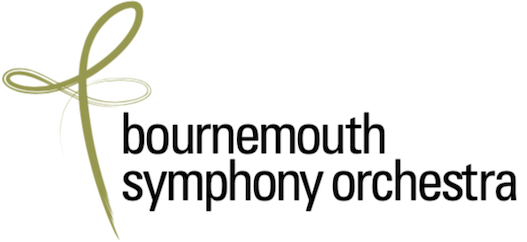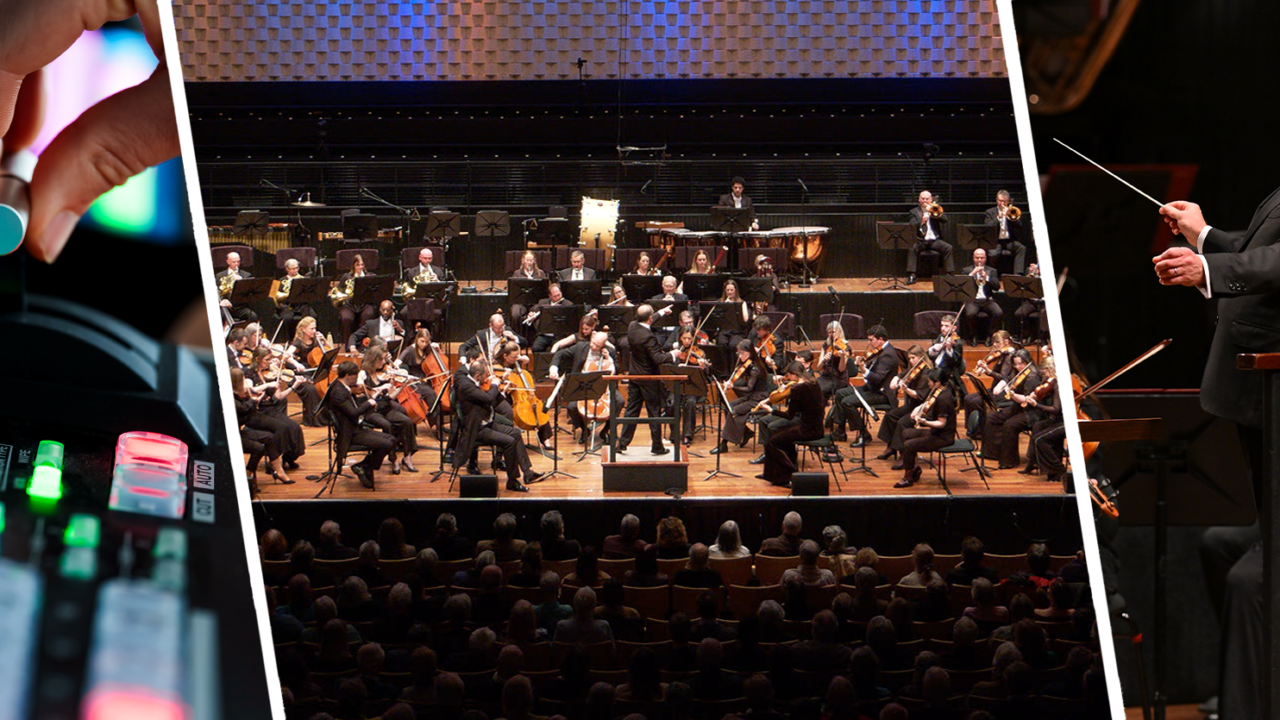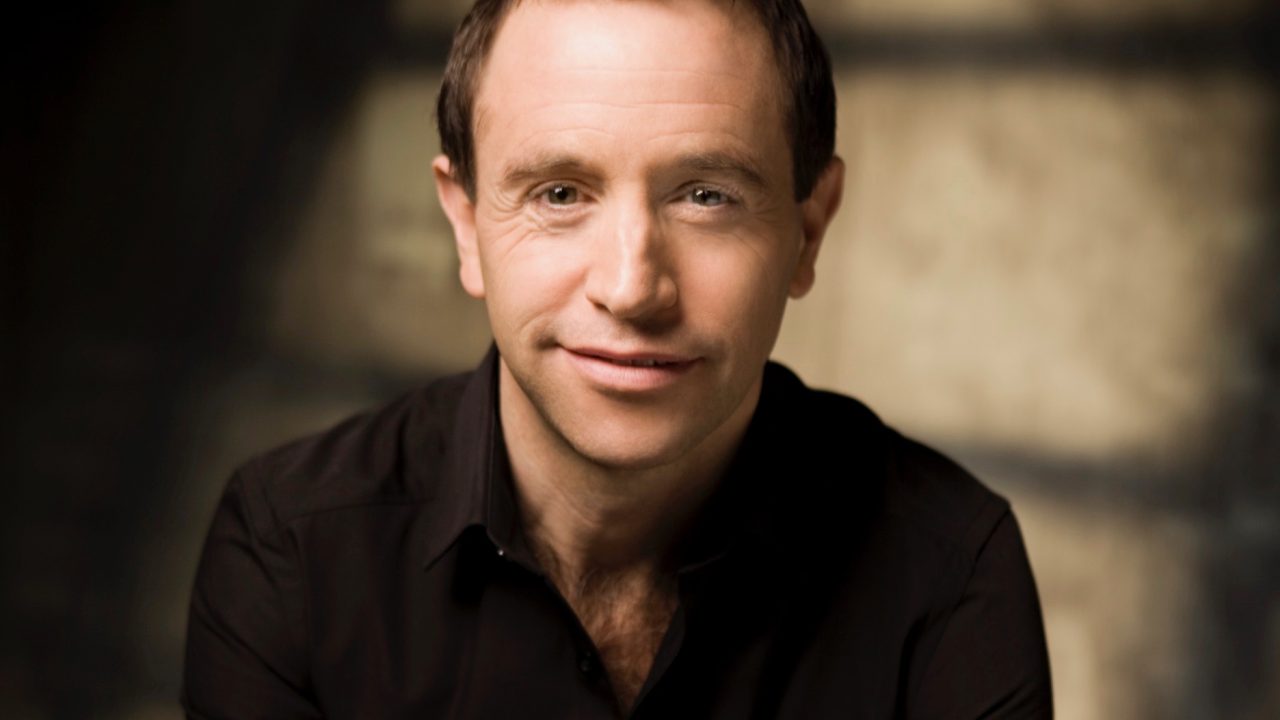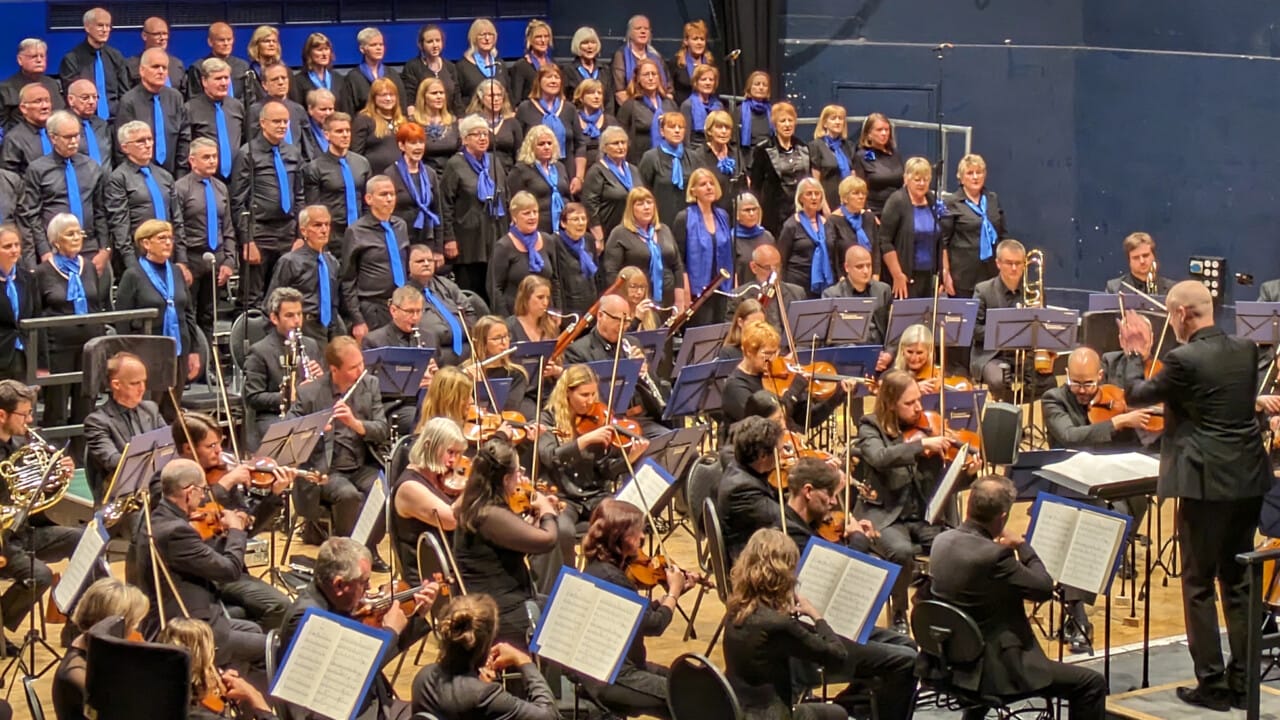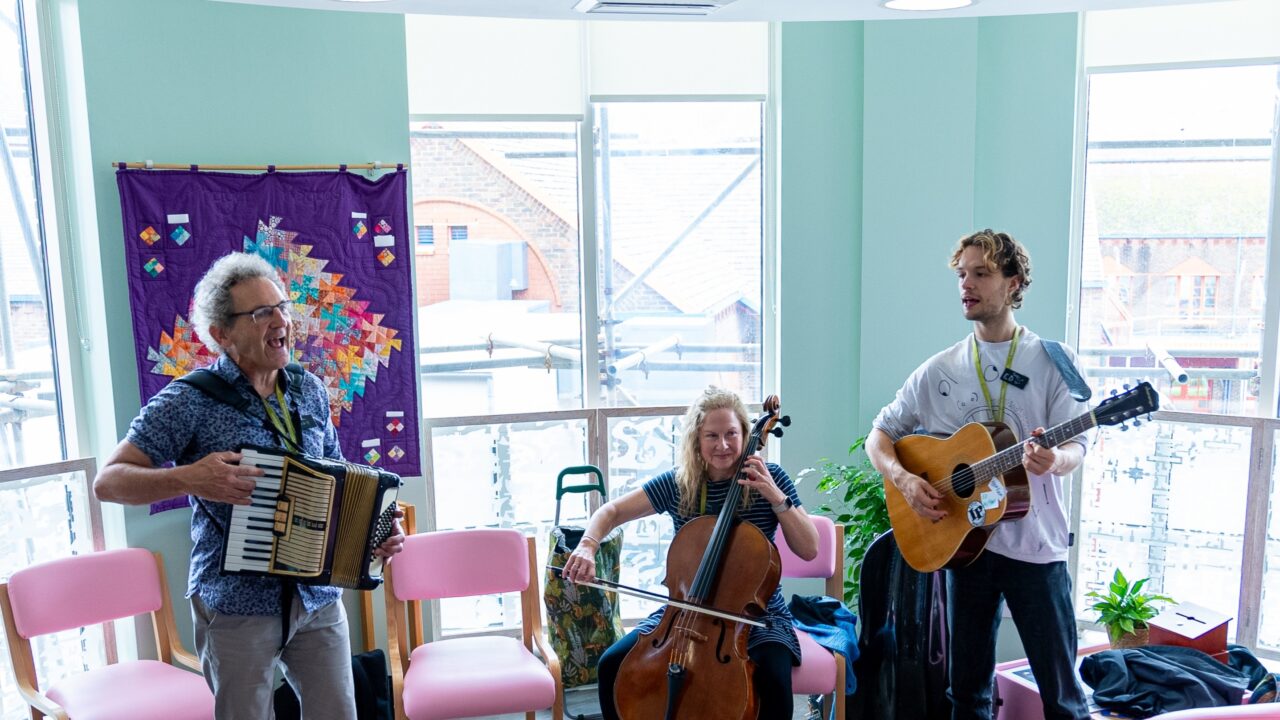In May, BBC Radio 3 came to Lighthouse, Poole to broadcast Elgar’s monumental The Dream of Gerontius and we caught up with the team.
BBC Radio 3 presenter Martin Handley explained what can happen when broadcasting the BSO live
Audiences may spot me sitting behind the 1st violins, where every comes on and off stafe. Kirill and I do a lot of ‘thumbs up’ and ‘high fives’ and I enjoy being there, encouraging him throughout. We love coming to the BSO – the concerts are always cracking and the audience is amazing; they’re never daunted by challenging repertoire, which is great to see.
I always have additional notes for the script, but as you never know when the solo violin strong will break or the conductor forgets his baton and has to go back. Fairly recently, I was presenting a performance for the 100th anniversary of Czechoslovakia. Semyon Bychkob was conducting [ed. fans will recall Bychkov is the older brother of the late Yakov Kreizberg, Principal Conductor of the BSO from 1995-2000] with various dignitaries there. Everyone went to have their nineteenth G&T at the interval and after 20 minutes the players were sitting on the stage looking very po-faced – it was completely silent, I’d said my introduction to Dvorak Symphony No.7 but there wasn’t a soul in the auditorium! After going through my fill material, I started twittering about the pictures on the wall, the bust of Henry Wood… how do you persuade them to come in, when you have royalty there what can you do? I went on for 12 minutes, which in a live broadcast feels like a lifetime – you just keep going, even if you feel slightly silly!
Ellie Mant produces a range of programmes and loves getting out to the concert hall
It’s my job to make the concert as vivid for the radio audience as in the hall, so I’ll work with the presenter to add colour into the script and pre-record artists interviews. I’m there to ensure the broadcast runs smoothly, which involves handing back to Broadcasting House promptly and making decisions if something goes wrong mid-way through. You’ll find me in the truck giving instructions to Martin via an ear-piece that he wears on stage.
The Studio Manager runs the technical side of things – Marvin Ware has been in the role for 35 years
I always think that a music balancer is like an extension of the orchestra, I want to show the performers and composers off to their very best. The most important part is in the planning to ensure I bring the right mic on the night – this is crucial. I’ve been coming to Lighthouse, Poole for 25 years – it’s good, but there can be challenges with where you can actually drop and put mics on a narrow stage.
Inside the truck is a large digital mixing desk with space to put my music scores, and all the equipment that we need for broadcasting the listener via Broadcasting House. You’ll also usually find a selection of chocolate biscuits! The truck communicates with Broadcasting Housse via both a main and a spare circuit: one is via high-quality internet, and the other via dedicated lines from BT. There is also a talkback circuit to the continuity studio for discussion over handover times, intervals and timings.
I’ve covered the full range for Radio 3 during the last 35 years, from nose flutes at WOMAD to big bands, opera and classical concerts. One of the largest and craziest things I did was Frank Zappa’s 200 Motels in the Royal Festival Hall. It was so huge and complex that we ended up calling it 200 headaches!
The Radio 3 crew always love a curry, and we’re big fans of Tandoori Nights, Poole; we went there so often at one point that a few of us were on the Christmas card list!
